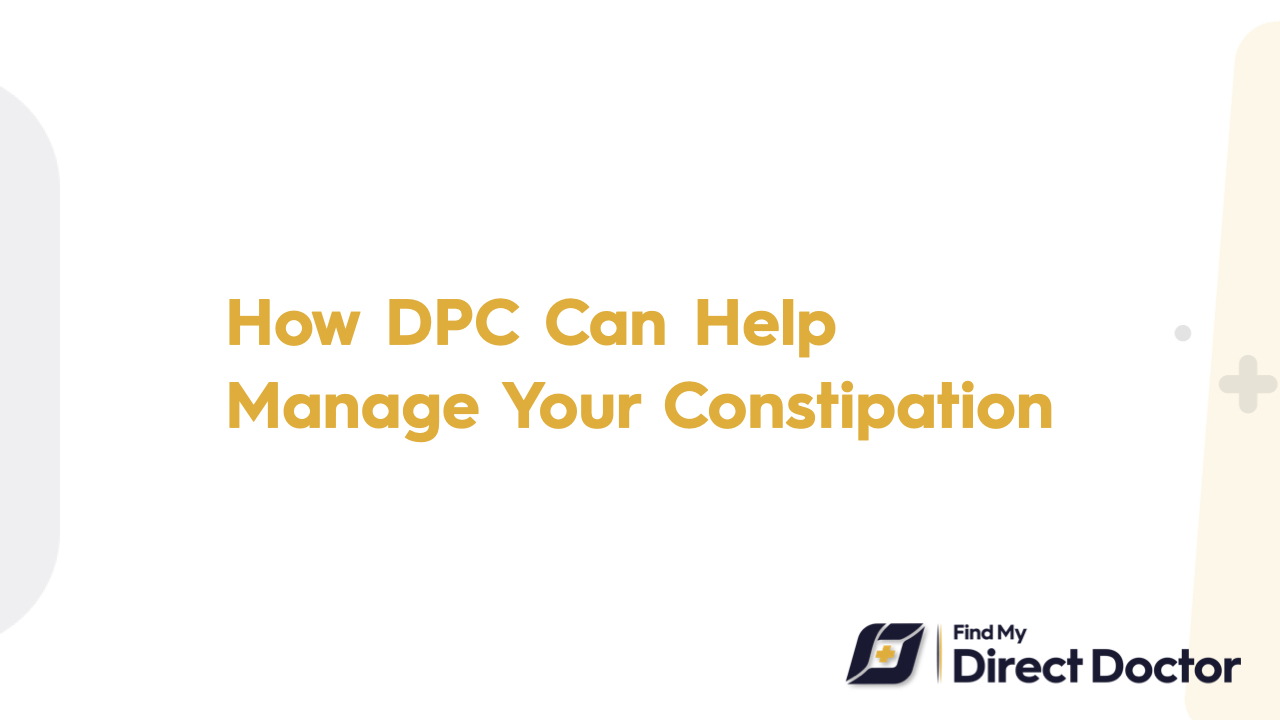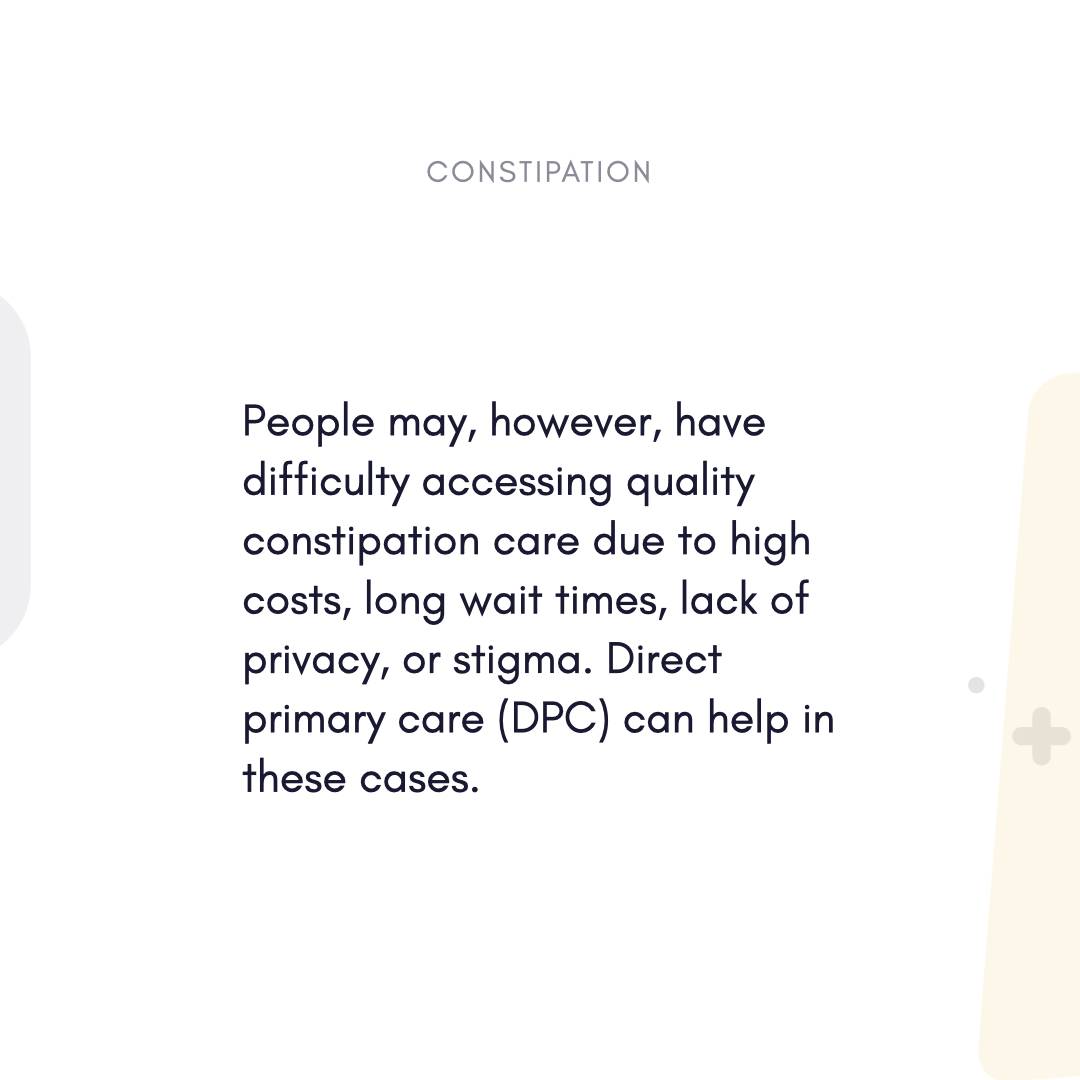Constipation and Direct Primary Care (DPC): Personalized, Proactive Digestive Health
Millions of people suffer with constipation, usually from diet, lifestyle, drugs, or underlying diseases like IBS or hypothyroidism. Frequent, painful bowel movements or difficulty passing stool affect millions. Chronic cases risk hemorrhoids or fecal impaction. Emphasizing accessibility and continuity, membership-based Direct Primary Care (DPC) provides a patient-centered approach to address root causes, customize treatments, and restore regularity through individualized strategies and ongoing support.

How DPC Improves Constipation Control (Root Cause Analysis)
- Extended discussions: 30–60-minute visits explore diet, hydration, exercise, medications (opioids, iron), and stress triggers.
- Targeted testing: Use labs to identify electrolyte imbalances, diabetes, or hypothyroidism, avoiding unnecessary treatments.
- First-line interventions (per AGA guidelines):
- Dietary changes: Increase fiber (25–30g/day) with whole grains/fruits/veggies; add probiotics or osmotic laxatives (PEG 3350) if needed.
- Lifestyle adjustments: Schedule bathroom times, hydration goals, and exercise routines.
- Medication management: Adjust constipating drugs (antacids) or prescribe short-term stimulant laxatives cautiously.
Customized Strategies for Constipation (Personalized Plans)
- Pediatric/geriatric care: Safe laxative dosing for kids; address polypharmacy and motility issues in seniors.
- IBS-C focus: Recommend low-FODMAP diets, lubiprostone, or stress reduction (mindfulness, yoga) for gut-brain balance.
- Ongoing monitoring: Track bowel consistency (Bristol Stool Chart), fiber intake, and medication efficacy via follow-ups.
- Collaborative care: Partner with gastroenterologists for refractory cases needing motility tests, biofeedback, or linaclotide.
Why DPC Stands Out for Constipation Patients? (Key Benefits)
- Immediate access: Same-day/next-day visits address flare-ups (bloating, pain) before complications arise.
- Cost transparency: Flat monthly fees (USD 50–150) eliminate copays for labs or dietary counseling.
- Holistic focus: Combine physical, mental, and lifestyle care—critical for stress/IBS-linked constipation.
Limitations (Important Considerations)
- Severe cases (bowel obstructions) require emergency/specialist care beyond DPC’s scope.
- Advanced diagnostics (colonoscopy, anorectal manometry) may still need insurance coverage.
Final Notes (Long-Term Digestive Wellness)
- DPC transforms fragmented constipation care into root-cause solutions.
- Prioritizes AGA-aligned dietary/lifestyle changes and continuous monitoring for adherence.
- Reduces laxative reliance through stress management and preventive education.
- Eliminates rushed visits to uncover subtle triggers (medication side effects) often missed in traditional care.
- Offers a committed partner for lasting relief, whether for occasional irregularity or chronic IBS-C.






